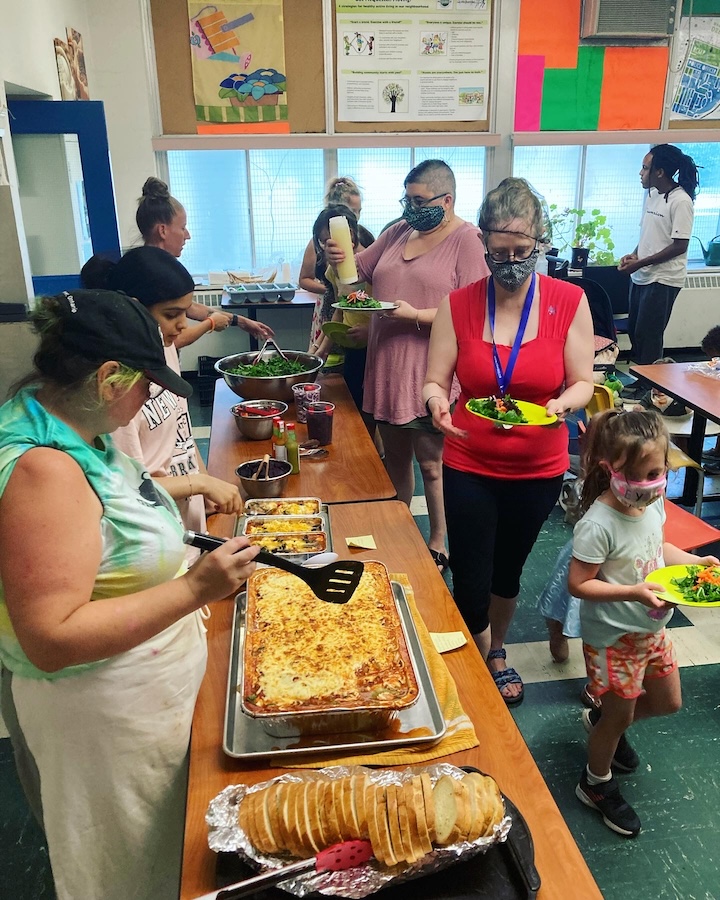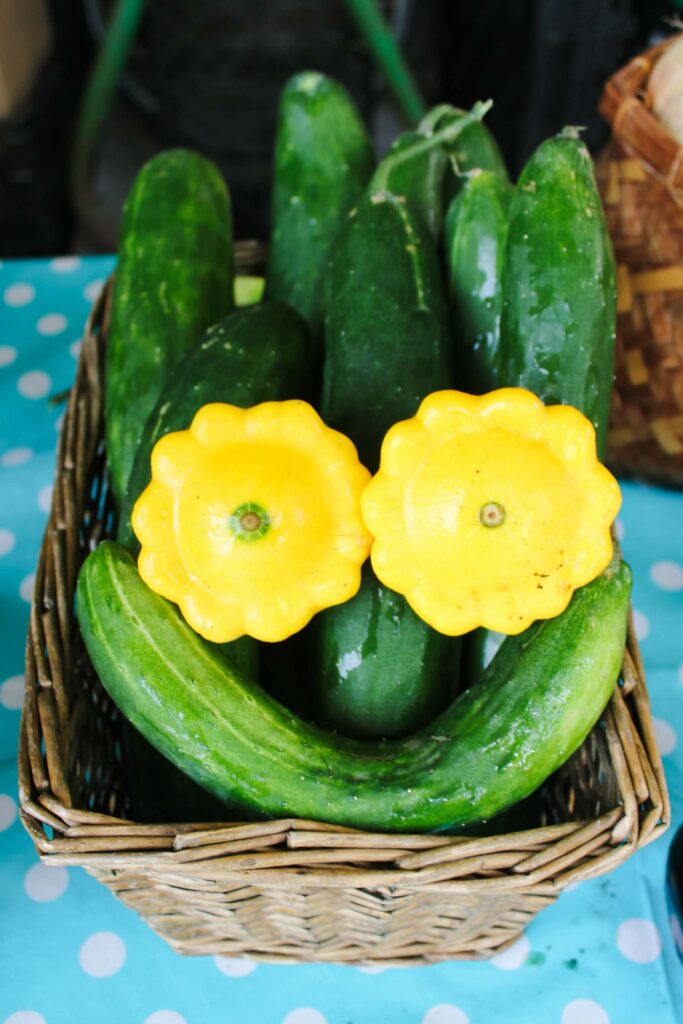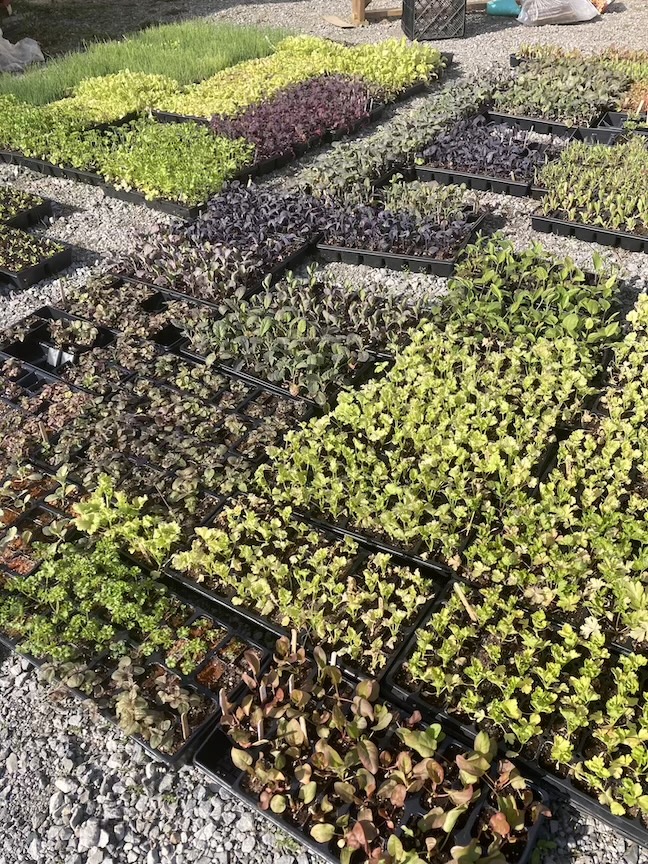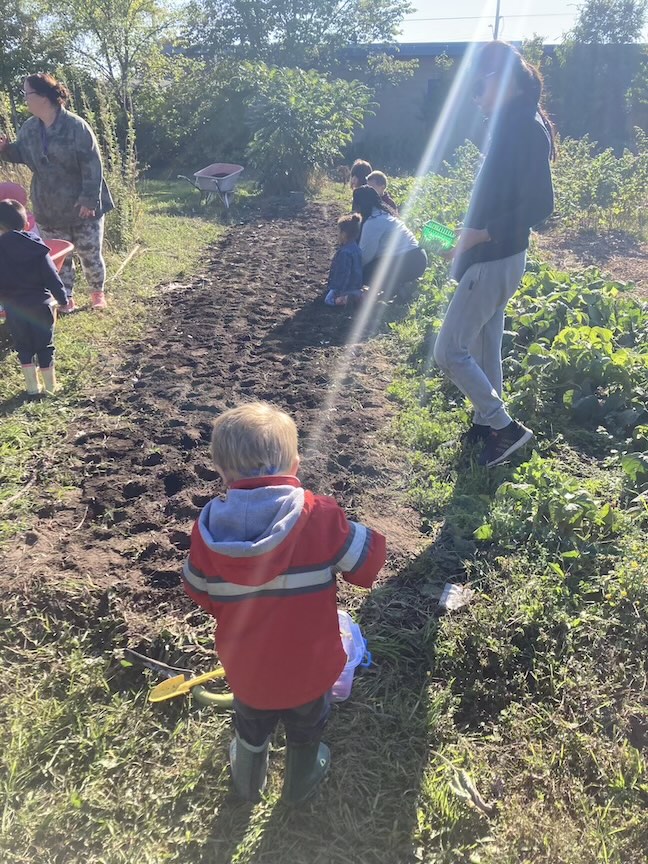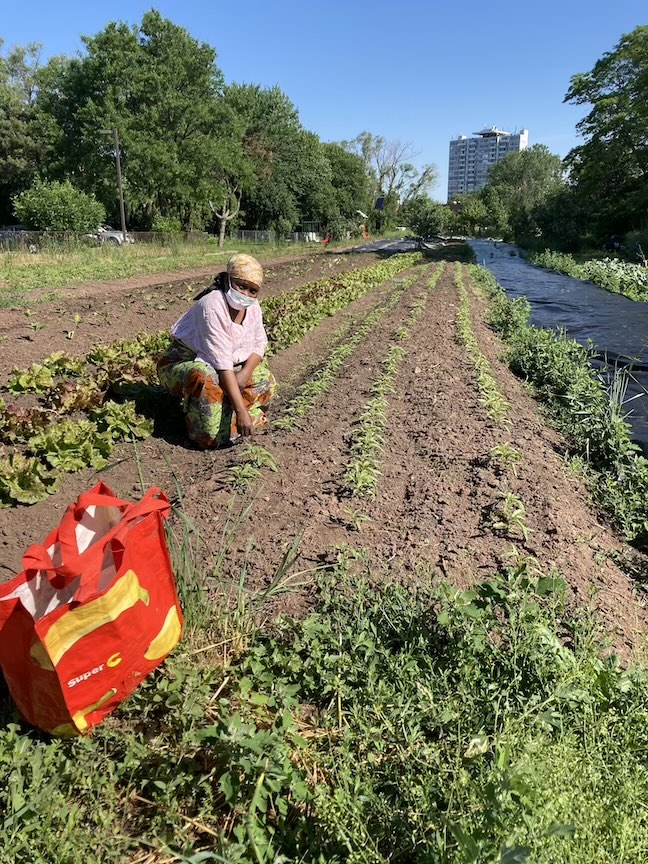Farm City
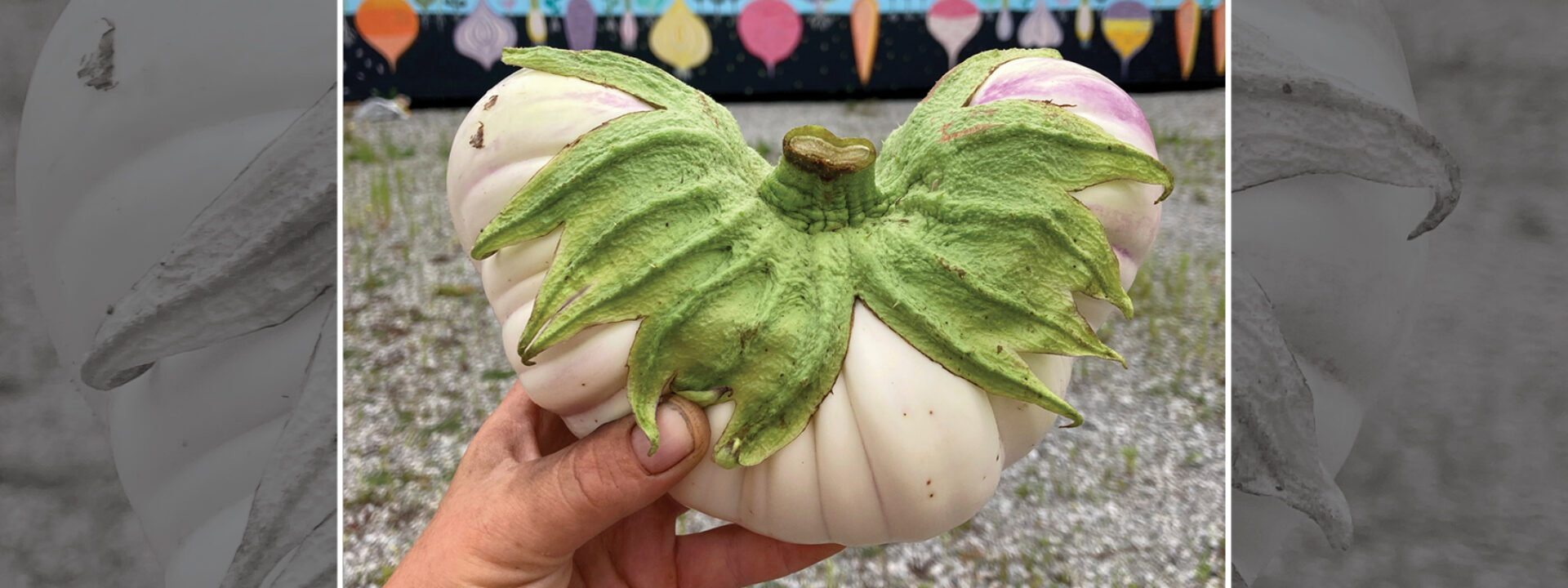
McQuesten Urban Farm is nestled in a east-end neighbourhood and grows healthy, affordable and culturally diverse food for its neighbours, while providing classes in cooking, canning and fermenting.
If you’re headed for a drive in the east end near Parkdale Avenue, you can reasonably expect to see the usual things you’d see in a city: sub shops, dentist offices, a couple of hardware big-box stores, things like that.
But a three-acre farm? That’s a little more unexpected.
McQuesten Urban Farm is nestled into a piece of land where Britannia Avenue meets Oriole Crescent in the Oriole neighbourhood that was initially supposed to be part of the Red Hill Expressway. Thankfully, it was spared. In 2008, after a significant grant from Maple Leaf Foods, Pat Reid, along with Plan B Organic farm and a band of volunteers, set up a farm right in the middle of the suburban east end, in an effort to address food insecurity in the area.
Over the next four years they put in garden beds, a pond, an irrigation system fed by the pond and planted hundreds of vegetables. The rest is history.
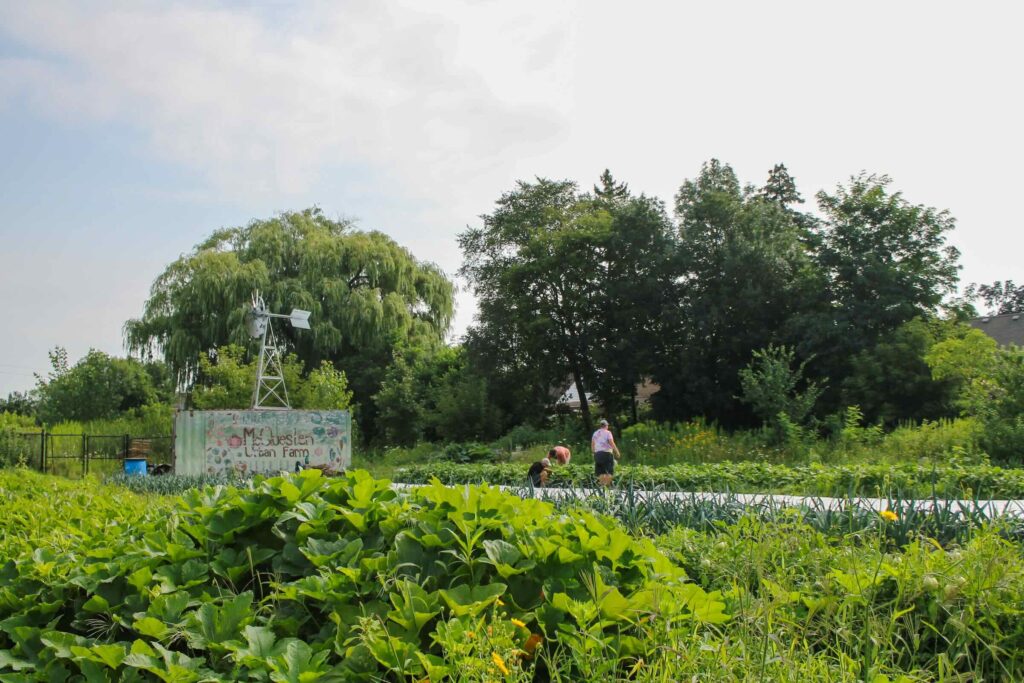
Fast forward to present day and the farm is a long thin row of garden beds, green and lush in the summer. The pond is still there, and sits halfway down the plot, while at the far end is “the compound.” This is a fenced area of greenhouses and storage sheds that also has an outdoor meeting space and classroom.
In summer and early autumn it’s a hive of activity with volunteers sowing, watering, tending and harvesting a dizzying array of market garden vegetables.
Amy Bonin is the farm team lead. She works with staff and volunteers to plant the vegetables, harvest them and then make them available to buy at the farm’s summer produce stand. She is deeply committed to supporting the neighbourhood where she both lives and works.
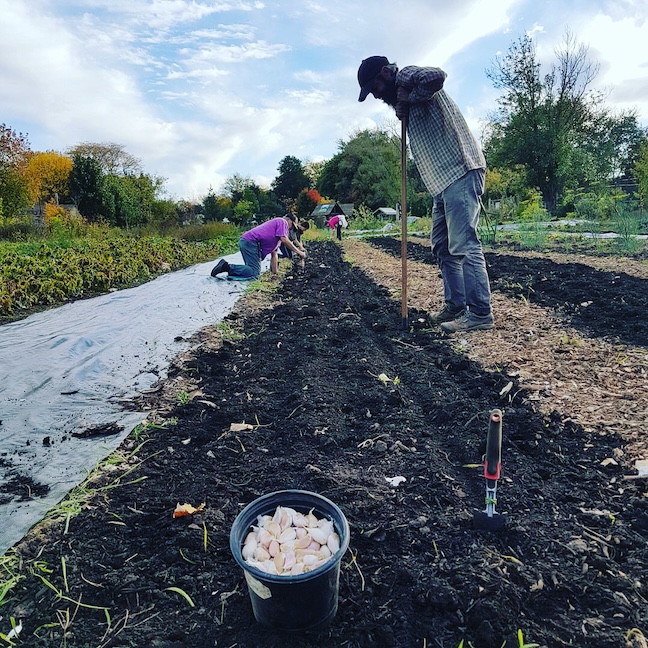
“Everything we have is organic, low cost and nutritionally dense.” It’s a way to bring healthy eating to an area with no grocery store within a 2-km radius. In fact, the 7-11 opposite the farm is the most profitable franchise location in Ontario, for just that reason.
The farmer’s market runs from June to October and the farm deliberately prices their vegetables to support their neighbours. “Our prices, we haven’t changed them in four or five years. Everything is low cost, a bunch of beets is $2, a head of lettuce is $1.”
McQuesten also offers workshops on fermenting, canning and basic cooking skills. They are not only supplying people with the food they need, but also the knowledge of how to prepare and preserve it.
And to close the loop from farm to table, on Thursdays in the summer they even host a community dinner for their volunteers called “Weed and Feed.”
Another part of the commitment to the neighbourhood is a dedication to growing cultural foods that aren’t always in grocery stores. “That’s huge for us,” says Bonin. “What neighbours want is what we grow.”
For instance, Dominia (a longtime volunteer) provided seeds for Jamaican callaloo. It’s a thick leafy green that is popular in Caribbean cooking and can be hard to find. “It’s our number one seller. We sell hundreds of bunches,” says Bonin.
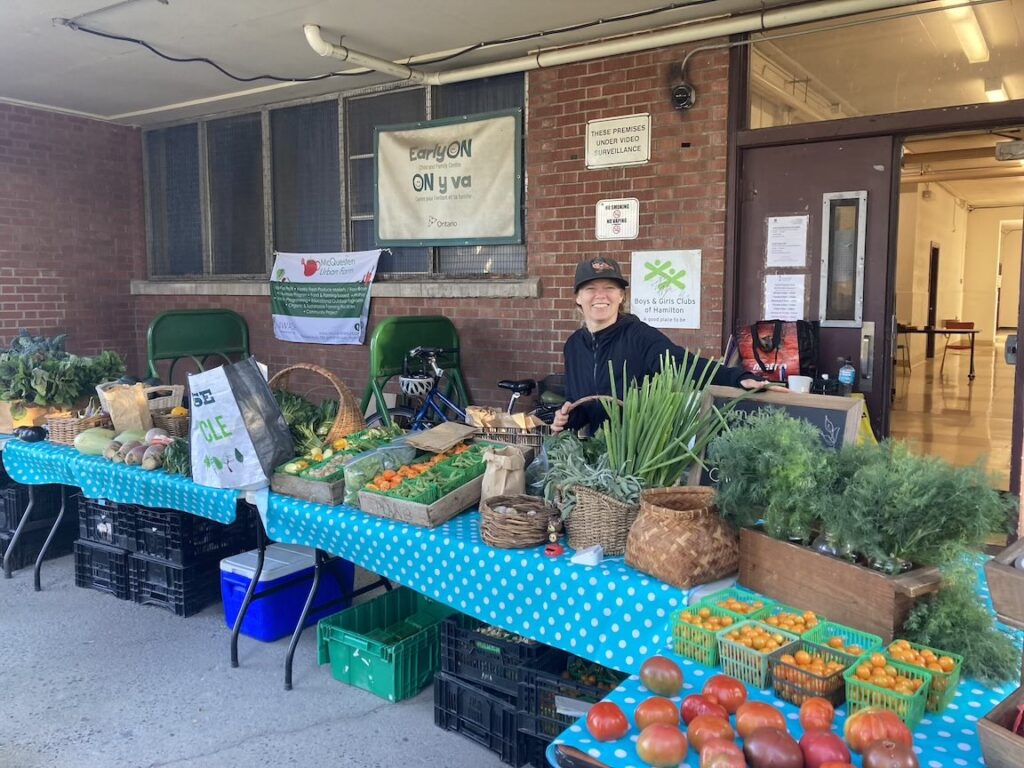
Dominia is the holder of one of two community garden plots on the site, and her relationship to McQuesten has always been generous. The seedlings Dominia shares often go on to be their best sellers.
“Last year she gave us bitter tomato, like a tiny white eggplant, and people came from Burlington to get it.”
McQuesten Urban Farm is now under the leadership of Niwasa Kendaaswin Teg, a multi-service Indigenous organization that provides programming rooted in culture and language. Its programs are focused on culturally relevant education, social services and food sovereignty. They also operate an EarlyON Child and Family Centre that involves the farm in its programming. McQuesten farm works closely with Niwasa in everything it does.
“We have quite a few medicine wheel gardens, and we work with the EarlyON program, and they did the three sisters garden this year,” says Bonin, the latter an Indigenous tradition of planting corn, beans and squash together.
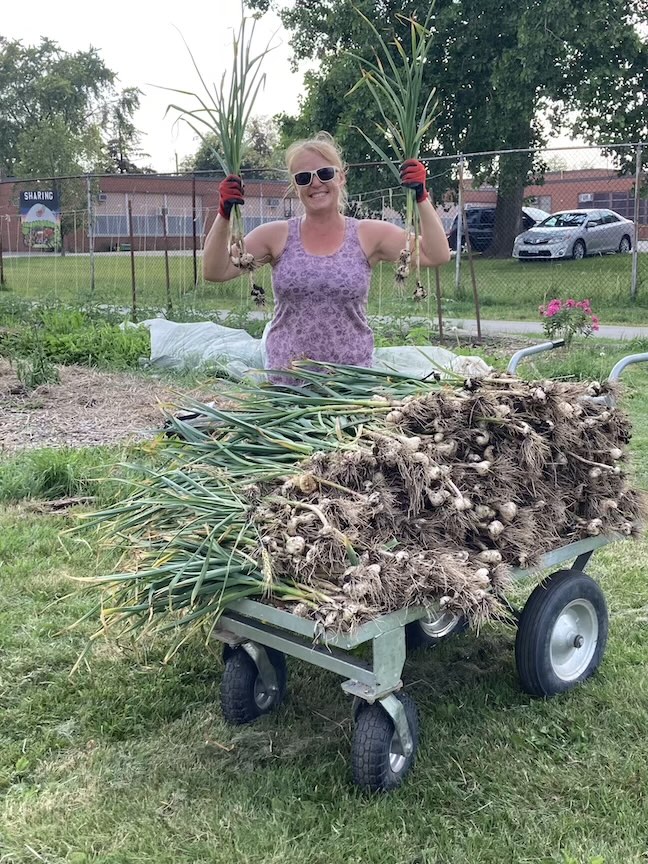
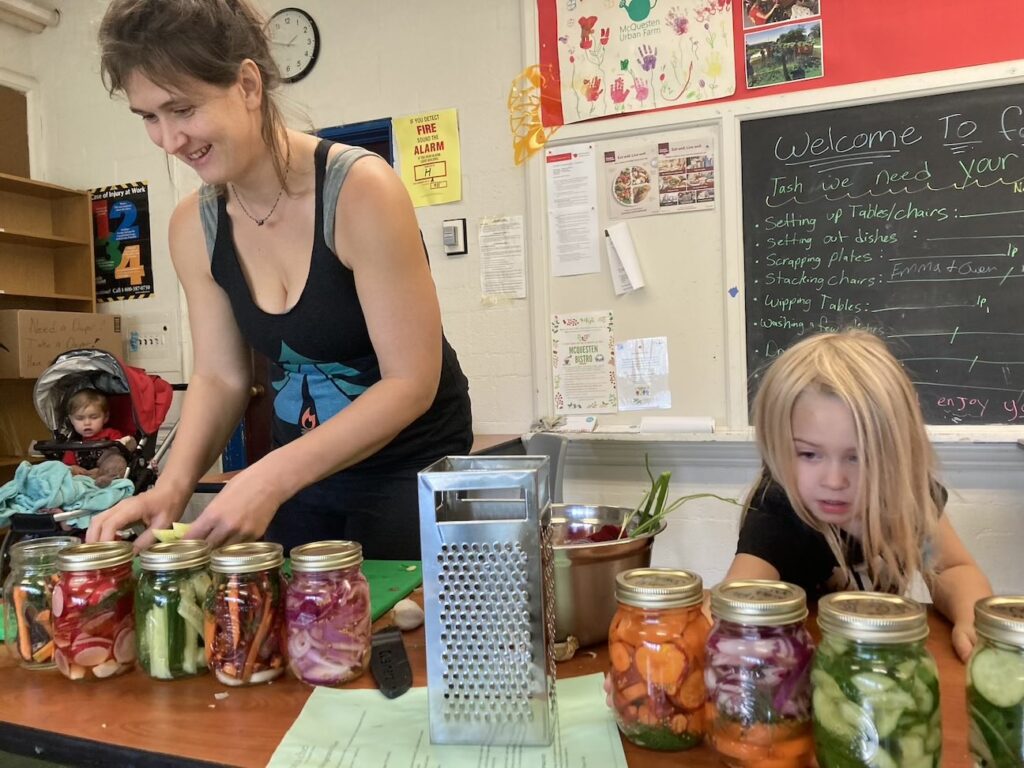
Overall, the project is much bigger than you might think possible from looking at the compact site.
“Last year we planted 30,000 seedlings. We also donate them to the community gardens and all proceeds go to the operation. And this year we grew 22,000 lbs of food, which is amazing on this tiny plot,” says Bonin.
“We do interplanting and succession planting and plant one thing after another.”
There are also more than 500 volunteers, including many who volunteer for days of care, a teen group and a huge roster of regular weekly helpers.
Big changes are coming to the farm though. In the next few years, the building in which they do programming is scheduled to be demolished and a community centre built on the site.
“It’s going to be Biindingen Well-Being Centre,” says Bonin. “That’s a full wellness facility for Indigenous and non-Indigenous people. It will have social housing, a cafeteria, food bank and other programming in a campus style.” The centre is being built in partnership with Niwasa Kendaaswin Teg, Ontario Aboriginal Housing and De dwa da dehs nye>s Aboriginal Health Centre, and will host education, social and health services and housing in one location.
Bonin is excited about the possibilities of the new facility and new opportunities for the farm to serve its neighbours, even during the three to four year transition.
“Indwell has generously allowed us to use their kitchen, so we’ll do our workshops there.”
In the end, and even the meantime, McQuesten Urban Farm will continue to grow nutritious healthy food for its neighbours, and be a linchpin for food security and health in its neighbourhood.
Be sure to check out their farm stand, which operates on Saturdays during the summer. You can learn more at www.mcquestenurbanfarm.ca.
Jason Allen is the host of The Environmental Urbanist, Tuesdays at 1:00 p.m. on 93.3 CFMU, and has been encouraging Hamiltonians to explore the outdoors for almost two decades.








